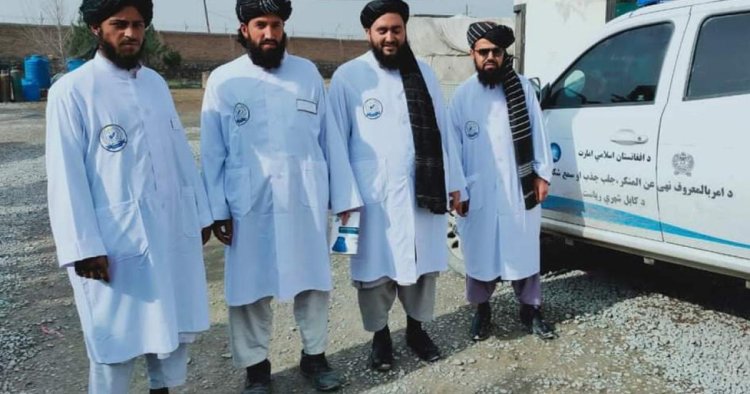Taliban Arrests Two Media Workers for Allegedly Promoting Atheism and Feminism

The Taliban’s Ministry for the Promotion of Virtue and Prevention of Vice has announced the arrest of two staff members from the cultural and artistic organization Nama Rasana in Kabul, accusing them of “inviting people to Christianity, atheism, and promoting feminism.”
Saif Khyber, spokesperson for the ministry, describes Nama Rasana as a “cultural-religious institution” and claims that the arrested employees have confessed to “inviting people to atheism and Christianity.”
Nama Rasana is a cultural and media organization in Afghanistan that produces films, series, and artistic content primarily for online platforms. In addition to its digital presence, the organization also runs a public library and a store offering cultural products within the country, as well as a cultural news agency.
The Taliban has published a video on social media showing a forced confession by one of the detainees, identified as Seyed Reza, a librarian at the institution.
In the video, Seyed Reza is seen holding copies of the Bible and several other books, including A History of Christian Thought, A Collection of Essays on Feminism, and The Hazara People and Greater Khorasan. He states that these books were kept in Nama Rasana’s public library and made available to the public for reading.
In another part of the video, it is also claimed that “the series produced by Nama Rasana did not align with Islamic Sharia and Afghan culture.”
So far, the Taliban has not released any information about the identity of the second detainee. Nama Rasana has also not issued an official response to the accusations at the time of this report.
This arrest is part of the Taliban’s broader crackdown on cultural, media, and artistic institutions. Since returning to power, the group has detained hundreds of journalists, writers, artists, and media workers on various charges. International human rights and press freedom organizations have repeatedly expressed concern over growing censorship, the suppression of free expression, and the erosion of cultural space in Afghanistan.
